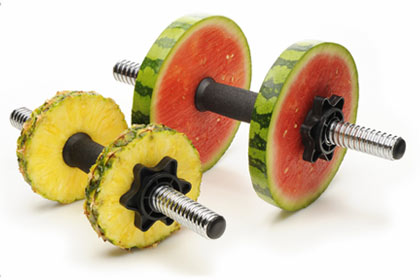- February 20, 2016

Keto diets are essentially programs that lower carbohydrate intake below 100 grams; strict ketogenic diets are a subset of low carb diets that typically only allow < 50g of carbohydrates per day. This limit does a good job of eliminating junk foods, refined carbohydrates and any other “fattening” foods. The full premise of a keto diet is far more than just minimizing carbs, it is a lifestyle about overall health. A Ketogenic diet is not easy and will test your willpower but transforms the way you think and understand about yourself, food, and health in general.
- Bring your daily net carbs down to 50g or fewer, preferably around 20g. Fiber does not count toward your daily carb intake, so say something you eat has 10g carbs but 8g fiber, then it has 2g net carbs.
- Keep protein intake moderate, 0.69 to 1.2 grams per pound of lean body mass.
Note: Over 0.8 grams is only suggested for heavy lifting & endurance training. - Increase the portion of your diet that comes from fat.
- Increase the amount of water you drink.
- Up your intake of salt, potassium and magnesium.
There is no such thing as an essential carbohydrate. . . . Anyone who tells you to start eating carbohydrates in order to fix a health problem is totally missing the point.
- Nora Gedgaudas
Starchy foods and sugars are always unacceptable during Keto: grains (Even whole grains), bread, cereal, beans, pasta, potatoes, and everything in the dessert category. To your body, they’re all sugar, which breaks down into glucose in your bloodstream and causes an insulin response.
"Macros" are what your body uses for fuel: fat, protein, and carbohydrates. The macro-nutrient makeup of a ketogenic diet make it very easy to stay at a caloric deficit and lose weight. Most people don't even need to count calories on keto, because they naturally start consuming a healthy amount of calories.
- Carbohydrates are 100% anti-ketogenic due to their effects on raising blood glucose and insulin.
- Protein is approximately 45% ketogenic and 55% anti-ketogenic due to the fact that over half of ingested protein is converted to glucose, raising insulin.
- Fat is 90% ketogenic and 10% anti-ketogenic, representing the small conversion of the glycerol portion of triglycerides into glucose.
Although limited carbohydrate intake is arguably the most important aspect of inducing ketosis, protein intake is also extremely important in order to prevent muscle loss. While an easy solution is to simply eat as much protein as possible, too much protein can prevent ketosis as well. Therefore, protein intake must fall within a narrow range: high enough to prevent muscle loss but low enough that ketosis is not disrupted.
- Sedentary people: 0.69 - 0.8g per lean pound
- Mildly active or doing endurance / strength training: 0.8 to 1.0g per lean pound
- Heavy strength training / bodybuilders: 1.0 up to 1.2g per lean pound




